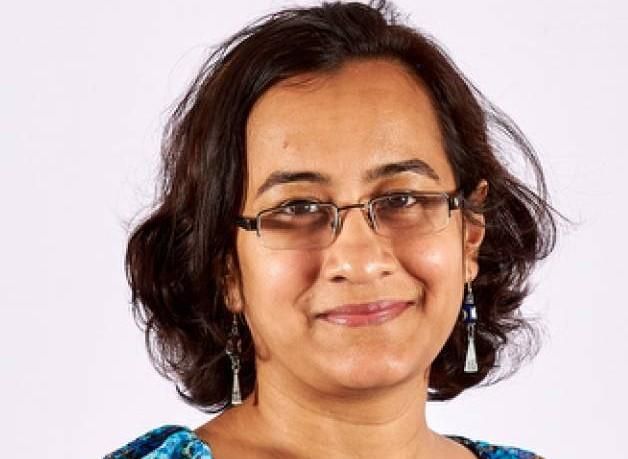Professor Charisma Choudhury is new Chair in Behaviour Modelling

Recognition for innovative research into leveraging emerging data sources for travel behaviour modelling and transportation in developing countries
The Institute for Transport Studies (ITS) are pleased to announced the new Chair in Behaviour Modelling is Professor Charisma Choudhury.
Professor Choudhury’s research primarily focuses on leveraging emerging data sources for travel behaviour modelling, especially in the context of the Global South. These datasets range from passively generated data sources (e.g. mobile phone records, smart cards, video images, etc.) to physiological sensor data (e.g. skin conductance, EEG recordings, etc.). Modelling travel behaviour using these data sources involved developing methodologies to combine data science, ubiquitous computing and choice modelling techniques.
The Director of the Institute for Transport Studies (ITS), Professor Simon Shepherd, said, “Research excellence in this area has enabled Professor Choudhury to win the Faculty for Future Award 2011 (awarded to the top 100 female STEM academics from around the world every year) and the UKRI Future Leader Fellowship 2020 (awarded to some of the most brilliant people working in the country) as well as the best paper awards in four international conferences.
“Her selection as a Turing Fellow of the Alan Turing Institute and appointment as an Honorary Guest Professor at Beijing Jiaotong University, China are testaments of her research excellence and global repute.”
The key essence of my research has been building bridges across disciplines
Speaking after her promotion to Chair in Behaviour Modelling, Professor Choudhry said, “The key essence of my research has been building bridges across disciplines - connecting choice modelling with data science, neuropsychology and ubiquitous computing to be more specific. Such interdisciplinary research always excites me most as there are always new things to learn from each other and it is really fun to merge the boundaries and do novel things. During my time at Leeds, I had the privilege of supervising extremely talented PhD students. Supervising them is the part of my academic career I find most fulfilling, and their successes are my greatest source of joy.”
Over the years, Charisma has secured funding from UKRI, EPSRC, ESRC, EU and industry for building her research group and has published 52 journal papers to date. Her top five publications are listed below and the full list can be seen here.
- Iqbal, M. S.**, Choudhury, C. F., Wang, P., & González, M. C. (2014) Development of origin-destination matrices using mobile phone call data. Transportation Research Part C: Emerging Technologies, 40, p. 63-74. Link.
- Bwambale*, A., Choudhury, C, Hess, S. and Iqbal, M.S. (2020) Getting the best of both worlds: a framework for combining disaggregate travel survey data and aggregate mobile phone data for trip generation modelling. Transportation, p.1-28. Link.
- Paschalidis E.*, Choudhury C., Hess S. (2019) Combining driving simulator and physiological sensor data in a latent variable model to incorporate the effect of stress in car-following behaviour. Analytic methods in accident research, 22, p. 89-100. Link.
- Hancock T.*, Hess S.; Choudhury C. F. (2017) Decision field theory: improvements to current methodology and comparisons with standard choice modelling techniques, Transportation Research Part B: Methodological. 107, p.18-40. Link.
- Choudhury C. F. and Ben-Akiva M. (2011) Modelling driving decisions: a latent plan approach, Transportmetrica A: Transport Science, 9, p. 1-21. Link.




